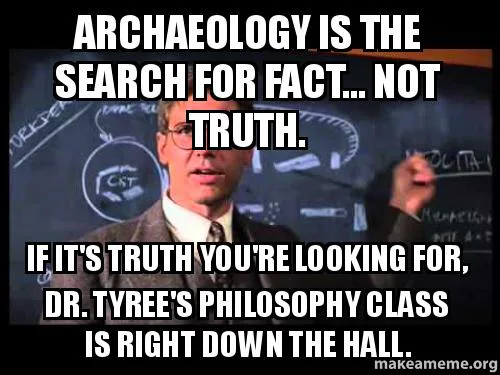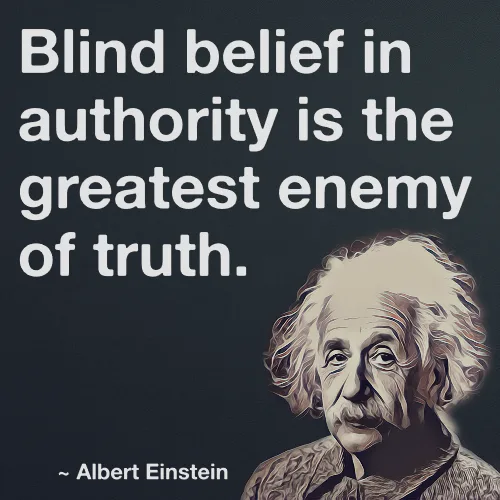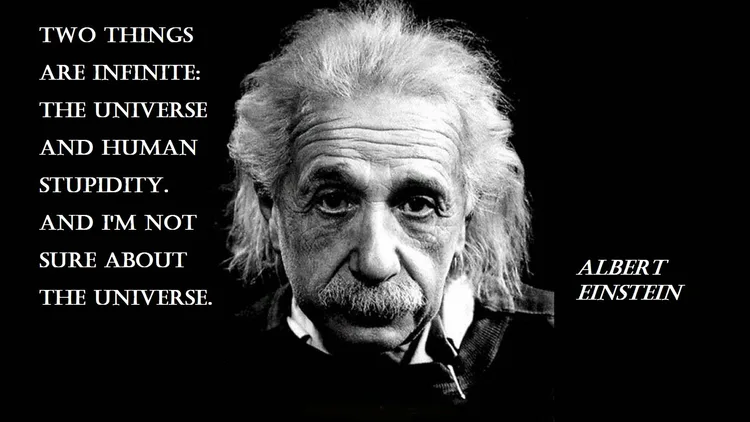Solving a problem... And this applies to any problem, seems so trivial, but is it really. There are some very simple steps to do this, however nobody wants to think about them.
I got some lessons in problem solving, and my teacher was already telling us, that these lessons should be given everywhere.
Step 1: What is the problem?
This seems very trivial, even childish, yet this is the step many people skip by default, and skipping this step makes finding a solution impossible (unless you're lucky). In politics in particular you can see the dramatical effects of skipping this step, or not executing it properly.
Now for me these lessons were part of a computer training, but actually this step is essential to any problem.
When you analyze the problem, you can actually find out some funny things. A few possibilities to discover are:
The problem you analyze was not *the* problem, but merely the consequence of another problem.
The problem is worse than you thought
The problem is not even half as bad as you thought
It may even be possible there never was a problem at all.
Now the top bullet point is the one that, in my experience, happens most.
A very famous example from history is the disease the plague. This disease was very extremely lethal and contagious. It's for a reason that it was feared a lot. The Dutch saying "mijden als de pest" (lit. Avoiding like the plague) is derived from this fear.
But what was the problem. The plague itself? Nope, with the knowledge we have today we know that the plague was only the terrible consequence of another matter. The plague was spread by rats, who carried the the small organisms causing the plague around. But it doesn't end there, as you may wonder are those rats the problem? Why would rats come to big human cities, spreading this terrible disease? Well rats don't care about humans... all they care about is food. And since most cities were full of junk back then and there was a lot of food leftovers in that junk, human cities were kind of a paradise for rats, so they came from all over the place. And there was the core of the problem: Pollution.
If people did just properly clean up their trash, and make sure it was outside of the city, rats would stay away, and thus not bring the plague with them.... Problem solved? Well that's a bit simplistic, and historians and physicians may come up with some more detailed stories, but for the good of this blog in order not to make things too complicated, let's consider it solved.
And this also shows us that by merely following step 1, you may sometimes even be able to skip the next steps. During step 1 it's always essential that you think about why something bad happens in the first place. Keep thinking backward until there is no further backward to go. Nearly all problems have a kind of a core. That core is what you need to find.
Step 2: Think of several possible solutions
Think of several solutions. Sometimes the first solution coming to mind is the only one, but you can only know this after thoroughly following step 1. Now the simplistic way in which I explained the plague problem, the solution appeared easy. For most problems things can be this trivial, but there are many issues of course, where things are by far more complicated.
For example the migration issue, which is politically a very sensitive subject, as what is reasoning and what is racism, etc. Now Trump saw the migration itself as the problem, and thought he could stop it with a wall. However as a European I know that even a complete Mediterranean Sea, which costs many life in people trying to get into Europe doesn't even stop them, and I think Greeks and Italians in particular know from first hand how people keep on coming despite that lethal barrier. Then you must think about the question "Why would they actually leave everything behind, and take this deadly journey anyway, as they knew before they departed that they'd lose everything, and possibly even their lives?" Right, so basically that means that the core of the problem is that they have a reason to get away. I quite often compare this with the "goldrush", in which people did very crazy things hoping to get gold, and to get rich.

This picture of people going up the mountain at Klondike shows the foolishness of people who hope to get a better life. Many people didn't even make it over the mountain alive, and when they made it, they got themselves in an even more terrible situation, and criminals were also there to abuse these people, and the amount of people who actually found gold was little. Was gold really all worth this? What can you do to solve this?
Well, poverty and desperate need to be well-financed may be the core parts here. One of the solutions could be authorities giving money so these people could at least get themselves shelter and food could be a possible solution. And when I take this to migration, making sure these people don't have a reason to leave their homes to come to the US or the EU could be a possible solution. I am NOT saying this is THE solution though.
Always keep in mind that very complex issue like migration or the goldrush could have multiple possible solutions. Try to write them all down.
Step 3: Weight your solutions
I warn ya, you're gonna hate this step, but it's a crucial one!
Now if you have multiple solutions, you must properly weight them. If the problem is the "disease" and the solution is the "medicine to cure it", you can easily guess that a lot of problems have their side effects. And those side-effects can be both good and bad, and therefore become a problem on their own.
For example:
In my plague problem, I came up with the solution to bring trash out of town, so rats would stay out of the city, but what is the effect of trashing all your junk out of town? Yup, environmental damage. A heap of garbage could cause potential damage to the surrounding nature and wildlife.
In the goldrush issue I brought in to make the authorities give the poor at least enough money to feed and shelter themselves, but that money has to come from somewhere, meaning that working people will need to play extra tax. Do we want that?
In the migration issue I brought in to make sure migrants have no reason to leave their home, but first of all that requires money, and you have to deal with local authorities as well, which can cause new issues.
Now problems of which the solutions inevitably bring "sacrifices" that nobody likes are not that uncommon. Especially not when dealing with large political problems. Now there is an old wise quote I once saw on a tile (white tiles with wise quotes in blue letters are a kind of Dutch traditional thing) saying: "Er is nog nooit een kok gevonden, die kon koken naar alle monden!". This is a metaphor. The translation is: "Never a cook has been found, who could cook to all mouths." In other words, no matter what a cook makes, there is always at least somebody who doesn't like it. In large scale problem solving this is rather a rule than an exception that some people will be very angry. This is also one of the reasons that politicians who actually manage to solve problems are quite often not popular, and why people solving problems in a commercial company are quite often the first ones to get themselves fired.
But in the end always think about the goods and the bads of a possible solution. And you may sometimes discover the solution is worse than the problem. "De genezing is erger dan de kwaal" (the cure's worse than the disease) as we often say in Dutch. Being narrow-sighted gets you nowhere. You really must be aware of the bad sides a solution can bring and if it doesn't cause more new problems then they are worth.
When it comes to large scale problems, this is also the stage in which debate is most essential. Let people weight your solutions and criticize them. Nobody likes to be criticized, but the core essence of critics is to keep your sharp and to make you think about your own actions and thinking. This can also be the part in which you discover your solution might work, or why it may not (or cause to many new problems).
Step 4: Execute the proper solution (or decide to accept the problem), or to go back to either step 1 or 2.
Now the part between parents of this sentence sounds very weak and quite often I don't have much respect for people doing that, as that is quite often the easy way out. But then again, so is executing solutions not properly weighted. Based on your findings in step 3.
When it seems that all given solutions are causing more trouble than the problem itself, you may want to go back to step 2 (or even step 1 to see if you actually got the problem well), think up new solutions. Analyzing everything all over, the so-called "back to the drawing board" situation, is not a shame. Failure is an essential part of learning. Even when all steps have been taken your solution may fail, but I get back into that in step 5. If you think you got the solution that is easiest to execute and causes the least of pain, or harms the least amount of people (you'll always make somebody angry, don't have the illusion that you won't).
And sometimes you must conclude that the problem itself is the least of all evils, but only do that when you see all solutions are failures from the start.
Step 5: Analyze the effects of yours solution
Failure is an essential part of learning, so step 5 is very essential. See very well if your solution works. If it does hey reason for a party, right? If it does not, then way may get back to (you're gonna hate this) step 1 to see why your solution didn't work. Sometimes the problem of your solution is just some "fine-tuning", like changing a few numbers. It's also possible your solution brings problems nobody could foresee from the start.
Common mistakes:
Now there are many boobytraps in problem solving. I already mentioned a few in my 5 steps above, but there are more.
Science != Religion. Science is the quest for the UNKNOWN, and not the known. It's only natural that people may discover some scientific findings may be debunked.
And what appeared "debunked" before, may still be proven later still to be right, so be careful with previously "debunked" facts.
Critics is not an insult. It's essential to get to the proper solution. Nobody is infallible, so don't think you are. The less you agree with critics the more important they can sometimes be. Those who criticize you are not by definition against you.
Don't confuse critics with foolhardiness, but also don't think to soon that people refusing to agree are merely foolish. Really, this is one of the most common mistakes I encounter on the internet.
Don't think the simplest solutions are always the worst. Sometimes they work best. People are quite often tempted to think in too complex ways. That is why step 1 is so important, especially as step 1 can quite often show you, you are taking a too complex approach.
NEVER forget that solutions can have side effects worse than the problem. If you forget (or foolishly refuse) to keep that in mind, you will become a problem yourself, and a catastrophical one at that. Yes, given the moment this blog was written and published, I guess you know whom I'm talking to.
Judge solutions by CONTENT and not by the person who came up with that solution. Now I am NOT a religious person, but I can say this: Pride is considered one of the seven sins for a good reasons. In U.S. politics you can quite often see that Republicans bash down a solution merely because it was a Democrat who came up with that, and VICE VERSA. Or a proud "rightist" who doesn't want a solution because it's "leftist". That kind of pride is only a recipe for disaster. (Now I can see similar things happening in any country, but the US is due to two parties the easiest example). Problem solving is not a race for who can think up something, and it is also not a race of not allowing somebody else some honor you wanted for yourself. Sometimes you must take your loss and accept you were wrong yourself, and that a solution you don't like still is the best (or least bad), and accept that somebody you hate or even despise did have the proper solution for the problem at hand.
This also brings us to the point that you have to see through propaganda and don't think black-white. For example, accept that communism wasn't evil, but that it simply failed due to the ideas behind communism were merely too utopic to be true, but try to see the good intensions behind it and you may see it does have parts that work. And when you take a closer look to capitalism, it has great parts and also some very dangerous cons. The best solutions rarely lie in the absolutes, but mostly in the middle ground.

Basically the same as my last point, but to make it more clear, don't ever think "whoever is not with me, is my enemy". Or "whoever is not fore us, is against us". Now technically Obi-Wan spoke like a Sith when he made that statement, but at the same time, he has a point too. Dealing in absolutes will never solve a problem. Never did, and never will.
However situations in which it *is* either one way or another DO exist. Sweeping that fact under the carpet.
Statistics are as a rule useless. Most people don't even know the story behind the statistics and that is what matters. And statistics are only useful if you use the CORRECT statistics, which most people never do.
Remember, the reason the great philosopher's of old, like Plato, Socrates and many others were able to "invent" science, was by criticizing what they heard, even though those in power didn't like them for that.
And now lastly, but this is very important.
KNOW THE DIFFERENCE BETWEEN A FACT, TRUTH, OBSERVATION, EXPLANATION, EVIDENCE AND OPINION!
Neglecting this can easily lead to false assumptions.

It may seem that Indiana Jones was not making any sense at all when he said "Archeology is the search for FACT... not TRUTH. If it's truth you're looking for, Dr. Tyree's philosophy class is right down the hall." But actually when you know the difference between fact and truth, it makes a perfect sense.
When I say I never lost a game of darts against Raymond van Barneveld and Michael van Gerwen, I am stating a fact, as I never did lose a game of darts against them. Now if you think that means I am a very good darter, then you get far away from the truth as I am not that good. This is because I left out a very vital fact that could get you away from the truth.
I never played against them, so how could I either win or lose?
Quite often people mark facts as opinions, as the facts stated are not convenient for them. Or opinions as facts as the true facts are inconvenient and the opinion is great to keep up to illusion to oneself.
A fact is just a matter on its own. The letter "o" is a complete circular letter... that is a fact (when using most common fonts). "Get" is spelled with a "G" an "E" and a "T" is a fact.
Observations can denote facts, but they do not always do. This because observations can be misleading. Except for trivial stuff as optical illusions, you must always make sure your observations come from correctly conducted observation methods and only then you may have observed a fact.
An explanation does not count as evidence. Evidence cannot be debunked anymore, or at least not easily, and evidence is always attained by looking into an explanation. And explanation is at first a kind of theory. An explanation can become evidence when the theory can be backed up.
And neither fact nor opinion nor observations nor explanation nor evidence show truth unless you can make sure none are left out (or at least the most vital ones are not left out). And this point is the biggest reason why humans are quite often acting so stupid. They see a fact and think they know the whole truth. That is rarely the case. Especially when you got only one fact.
Be critical, always, but don't go too far.

Now conspiracy thinking gets you nowhere. Conspiracy thinking is trying to find a conspiracy behind everything even when there is no conspiracy, and even if there was taking the actions of the conspiracy too far, and then you become a problem of your own. Especially when there actually is a conspiracy, this can be dangerous as conspiracies will easily take the fact you took it too far against you.
Taking things too far, is also the reason why many things failed, or why very big criminals never got the punishment they deserved.
However immediately dubbing things that seem to rash to be true as a conspiracy-theory is also not the right way to go. It can easily happen that some so-called conspiracy thinkers where not the fools you took them for, and that they were right from the start. Some conspiracy thinkers come up with their theories by the mistake they don't accept the facts the way they are, and make up their own fabrications in order to deny them in order to fool themselves. But conspiracies *do* exist, as a matter of fact, it was a conspiracy that led to the murder of Julius Caesar and the Brothers De Witt, and some other famous historical events. So be careful with that one.
Problem solving appears so trivial, but all in all, it can be harder than you think, and in the same time easier than you think. In the end it's just:
Analyze the problem
Think up multiple solutions
Weight the good and the bad
Execute the solution
Review the outcome
And repeating steps that may be needed. With that you'd think all problems are solved easily. Well, they should be. But it's the many trapdoors (and human pride) that quite often leads to stupidity, making problems needlessly bigger than they have to be....
Is that funny, or sad?












0 comments